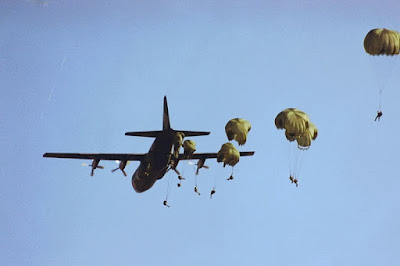Ang tunay na kalayaan ay paglilingkod sa bansa.
Kailangan natin ang isa’t isa dahil hindi natin kayang gawin lahat ng
bagay na gusto natin. Dahil kailangan natin ang isa’t isa, kailangan nating
mabuhay kaugnay sa kagustuhan nila at gayon din sila sa atin. Ang kasunduang
ito ang bumubuo sa ating mga kaugalian, pagpapahalaga at mga batas.
Ang paglabag sa kasunduang ito ay paglabag sa kalooban ng sarili, kaya
ito nagiging mali. Ang paglabag ay hindi lamang ginawa taliwas sa grupo, kundi
maging na rin sa sarili, dahil tayo ang pumiling mabuhay kasama ang ibang tao.
Habang lumalaki ang populasyon, lumalaki rin ang pangangailangan ng mga
tao, kaya kailangang ang bawat isa ay bumuo ng isang grupong hindi nangangailan
na magkakakilala ang lahat tulad ng isang pamilya, at na makukuha ang kaisahan
nito mula sa iisang pinagkukunan ng pagkakakilanlan. Ito ay ang bansa, na ang
mga miyembro ay may iisang wika, kultura at kasaysayan.
Bakit natin kailangang maglingkod para sa bayan? Dahil ito ang
magdadala sa atin ng mas malaking kasaganahan. Kung isang maliit na grupo
lamang ang kikilos ay limitado ang maaatupag na gawain, ngunit kung ang lahat
ay kumikilos sa iisang direksyon ay maging bundok ay kayang maitulak.
Ang tunay na kalayaan ay nasa paglilingkod sa bayan. Sa tunay na buhay
ay napakaraming posibilidad, napakaraming maaaring gawin, ngunit marami dito ay
pagkilos tungo sa wala. Ngunit kung sa bayan ang ating pipiliing pagkilos ay
maiaangat natin hindi lang ang sarili kundi ang buong bansa.
Iniisip natin na magiging mas mabuti kung tayo ay magiging makasarili
at umasa sa mga pampadali ng gawain tulad ng ‘diskarte’ (na pangalan lamang ng
iba sa korupsyon) at pagtatrabaho ng labag sa sinumpaan sa kontrata man o sa
bayan. Akala natin ay mas mabuti na sumingit sa pila dahil may kakilala, ngunit
pinapabigat natin ang sistema kaya lahat tayo ay nahahatak pababa, kahit ang
mismong ‘dumiskarte’, dahil hindi naatim ng sistema na kumilos sa
pinaka-potensyal nito.
Ang ating bansa ay hindi tunay na bansa. Hindi tayo kumikilos sa iisang
direksyon, tayo ay naghihilahan sa iba’t ibang direksyon dahil hindi natin alam
kung ano ang gusto nating maatim na adhikain o direksyon. Ang mga nasa taas ay
gustong magpayaman lamang sa pamamagitan ng pandaraya sa mga nasa ibaba ng kung
ano ang narararapat sa mga ito, habang ang mga nasa baba ay ninanakawan ang
pinagtatrabahuhan sa pamamagitan ng maling pagtatrabaho.
Tingnan ang isang kumpanya na ang mga pinuno ay hindi nagpapasahod ng
maayos, bumibili ng mahihinang materyales at pinangsusugal ang kapital; at mga
manggagawa naman na nagnanakaw ng mga kagamitan sa trabaho at gumagawa lamang
ng kung ano ang quota para sa araw o nandadaya sa kalidad ng gawa kung may
bonus para sa paglagpas sa quota. Ano kayang klaseng produkto ang ilalabas
nito?
Hindi gagana ang isang bansa kung ang mga tao ay hindi maniniwala dito.
Hindi natin maaaring ipagpatuloy na mabuhay para sa sariling kagustuhan lamang,
dahil kailangan natin ang isa’t isa upang marating ang mga mismong kagustuhan
na pinapangarap nating makuha. Lalaya lamang tayo at magagawa ang gusto kung
ibubuhos natin ang buhay natin tungo sa pagtupad ng adhikain ng lipunan, ang
paggalang ng mga institusyon, pamumuhay ng may karangalan at naaayon sa mga kautusan
ng Diyos. Ang tunay
na kalayaan ay paglilingkod sa bansa.









